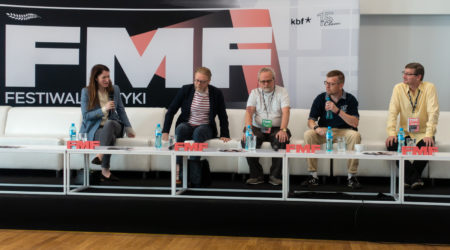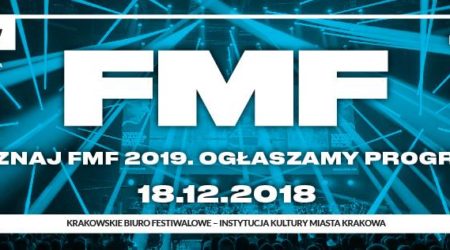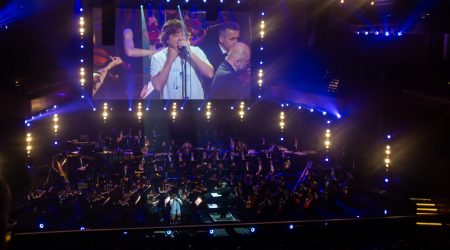If someone would ask me which film music composer you should explore that you have probably not heard about, I would always answer Bartosz Chajdecki from Poland. I attended the concert of Czas Honoru (English: Time of Honor), a Polish TV series with his music, in 2011 and I have been following his musical career, which includes fantastic soundtracks and superb concert suites, ever since. Chajdecki and I have been talking on and off during each edition of the Krakow Film Music Festival, and since he was participating as a guest for the 2019 edition of the festival, it was time for an official interview, to get to know him a bit better and to introduce him, as a fantastic composer, to our readers. This interview was conducted in a noisy coffee bar on May 16, 2019, so I would like to give special thanks to my friend Arek Kryska for doing the heavy lifting by transcribing the first draft of this interview.
Anton Smit: My first question is a simple one: How did you become a composer for film and television?
Bartosz Chajdecki: It’s because of Zbigniew Preisner. The composer to Krzysztof Kieślowski’s movies, for example The Double Life Of Veronique. Basically I’ve heard his music at the age of 10 or 11 and it opened something in my head: Some doors were kicked open because of that music and then in an instant I decided that I want to write music for films. Actually I’ve never wanted anything else. I didn’t want to write any other kind of music. It was a direct jump into film music for me. I mean, not directly because I needed to wait 20-23 years to write my first score to a film. Before that there were television scores of course.
Those times were kind of special, because in Poland no one wanted to be a film music composer. Everyone wanted to be like a contemporary music composer. Then we had a switch. Right now, and for the last 10 years, everyone wants to write music to film, but back then it was mostly contemporary music. So I directly wanted to jump into film and it was because of that Polish film music composer that was already very well known then.
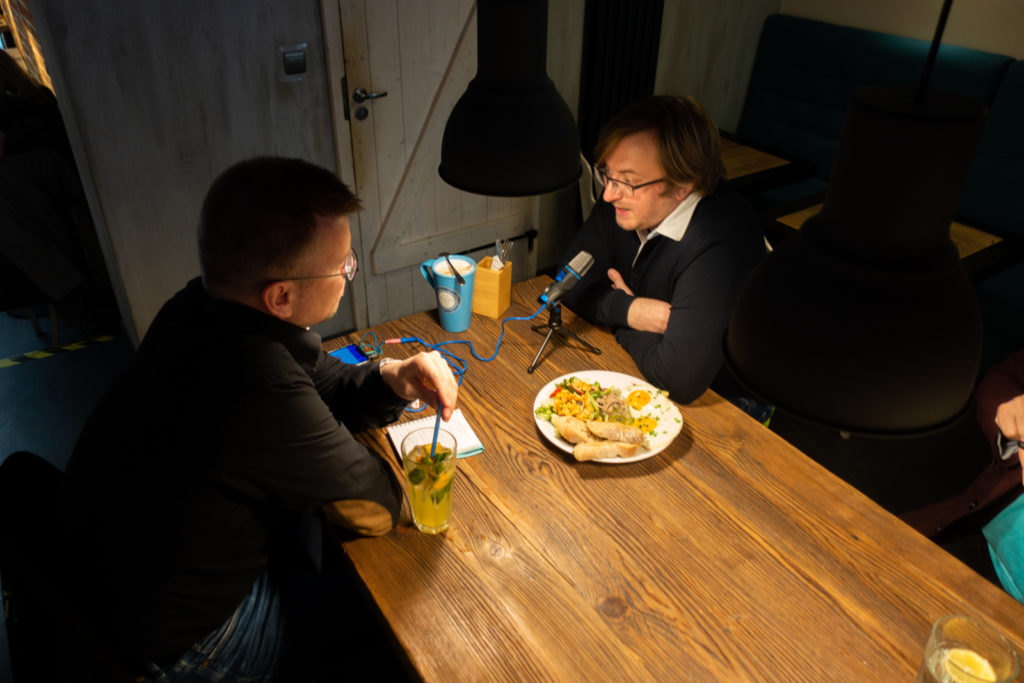
AS: I learned about you and your music during the Film Music Festival in Krakow in 2011 with the Czas Honoru concert. Was Czas Honoru the first thing you wrote that Polish people got to know you for, or how did they get to know your music?
BC: Yes, before that it was only theatre music. I started writing at the age of 16, professionally in a way, and I tried to break into the television or film business and I basically couldn’t do it. It was very hard. The first chance I got came 10 years after I started – it was at the age of 26 – and it was Czas Honoru actually. It was incredible because it was a great risk for the producer, because I was not known at all. That was my first big, and in general, my first television production. He absolutely made a leap of faith in a way that he just decided to hire me. Of course, there was a competition: I showed the demos and everything, and he liked it. Even with that, it was a great act of courage from him that he actually hired me to do this job, because it was kind of the major television series in Poland at the time. From the beginning everyone knew that it was going to be big. I knew it was my big chance and it all worked out in a way that until now it has been kind of a curse that I am probably still best known for this series. It started twelve years ago and I think I have done a lot of things since then and still everyone is like “OK, it is the Czas Honoru guy.” That is a blessing and a curse at the same time.
AS: A couple of years later you had your own concert at this festival again with the movie Bogowie (English: Gods) together with live music. For the Czas Honoru concert you were in the audience, but with Bogowie you were on stage performing together with a band and a string ensemble. How different is that?
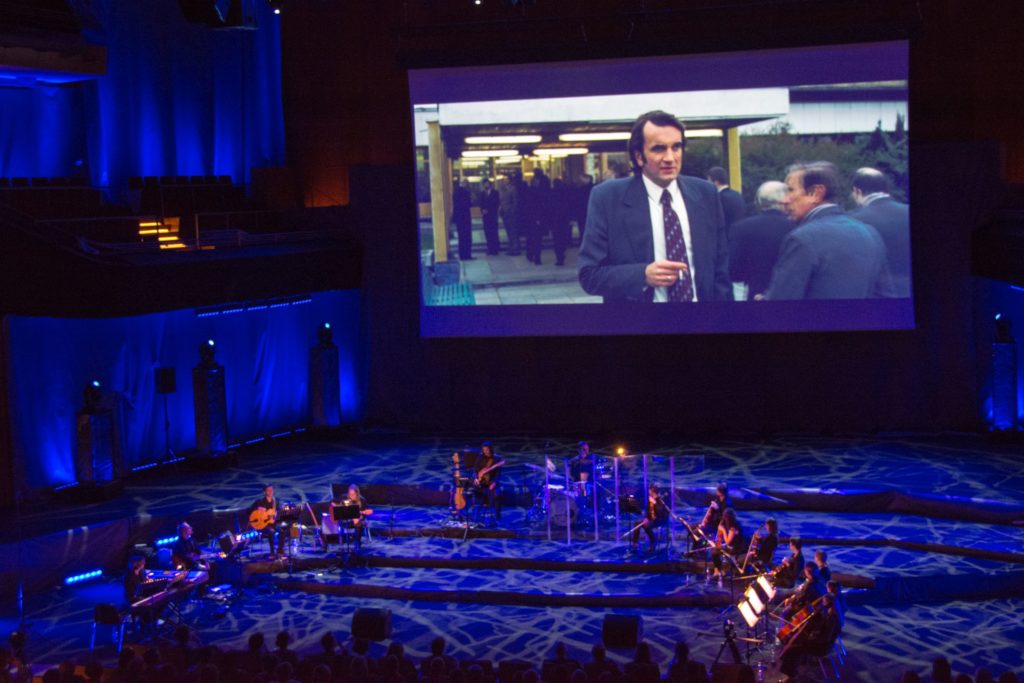
BC: It is very different. I mean of course me being on stage was in a way kind of silly. There are only a couple of notes that need to be played on the piano. I am not even a piano player but the festival liked the idea of me being on stage. It was mostly chamber music in the way that we had probably seven to nine string instruments and the band, which I think they never played to a click track. I decided that it would be stupid for me to conduct, since it is not needed for such a small ensemble, so we kind of used the piano as a device for me to be on the stage. It was a nice and great experience and the band was incredible, so I had a lot of fun. However, I was also connected to the television series concert at the festival. The day before, my big suite was performed in the Tauron Arena, so it was a very stressful time, because we had mixed rehearsals: One in Tauron Arena and one for Bogowie. It was a crazy time.
AS: Let us talk about that specific suite, which was a blend of the music for Misja Afganistan and Czas Honoru, which are two completely different Polish TV shows: one about the military in Afghanistan and the other about The Second World War. Was it your own idea to mix the music of those two worlds into one suite?
BC: Basically, I got like 12 minutes of time and I wanted to show as much as possible, and obviously I wanted to show the best of my music in a way, but also the biggest possible variety. Obviously, Czas Honoru had to be involved because it was the best fit for this big orchestral concert. I did not do a huge amount of big orchestral music because it is, usually, too big for Polish cinema and television. That is why it was obvious that we had to have something from Czas Honoru, but on the other hand I wanted to show some other flavors. The music for Misja Afganistan was different in a way that I could have Tina Guo performing on cello, I could have electric guitars and a lot of other stuff that I never used in Czas Honoru. So that’s why I mixed them both. Besides, the theme was more or less similar in a way that it is a kind of militaristic theme. It’s about soldiers, anyway. Misja Afganistan is just a current situation and Czas Honoru was The Second World War, but the emotions are kind of similar in my opinion.
AS: When you start with a new TV show or a movie, how do you get your ideas?
BC: Quickly! (*laughs*) Because that’s the only way you can get them. If you are slow you are not making it to the production or you are getting fired from the production! No, I mean right now it’s, in my opinion, part of the job of being a film music composer to work quickly and to be able to work well under pressure. I mean, if the pressure, deadlines and everything work well for you, it is a kick for you to start working and to have more and more ideas, then you should do this kind of work. If it blocks you, you are stressed and it doesn’t give you a creative boost then you need to reconsider, because maybe it’s not a job for you.
I don’t like to be bound by budgets too much. Unfortunately that is the case in most situations, but I don’t like low budgets. I’m not saying that low budgets are limiting creativity, I don’t think so. Creative thinking is to think about what you want in music, not how to pay for it, but I like deadlines. I like the situation “OK, the deadline is in two weeks, three weeks or a month. Let’s go for it and let’s push it.” This is something which makes me actually more creative, because I like the boost and the adrenaline.
Usually, I get the job, I read the script and I know that there is not much time so immediately I’m into this. I close the doors, I turn off my phone and after three days of not sleeping it is usually just a flood of ideas. Maybe one day that is not going to work but until now it has always worked. The less time I have, the better it works for me.
AS: And is it the same for movies and television?
BC: Yeah, the only thing is that as we produce music for television, we do not produce music for each episode. It means that it is different, because you are getting the first two episodes and you need to come up with a set of ideas and moods. For television series it can be an even faster process and you don’t need to write directly to the picture as much. You just need to write in a way that it will be easy to connect to the picture. When it comes to the movie, of course, you are writing to the picture, which means that sometimes you need to wait for the picture, you have to make a lot of adjustments because, nowadays everything is happening simultaneously. I mean there is no time to wait for the film to be fully edited, then to have one to three months for the music. Sometimes everything is okay and almost finished but they made changes to the edit at the last moment. You need to adjust the music and actually adjusting the music is way harder than adjusting the edit of the picture. Cutting the picture is easy and not a lot of people in the industry realize how hard it is to just cut a couple of measures of music, because it needs to go with the musical beat. The music is accepted at this point: It is done, but it is a time-consuming period and you are just not sleeping because you are trying to re-cut the music in a way that it is still going to make sense and meet the deadline for the print.
AS: For the people in my audience who are not familiar with your work, which of your music should they listen to, to give them an idea of your writing? What are you most proud of?
BC: The best is, of course, to listen to different styles, because I’m not the typical orchestral composer or only an electronic one. My choice would be to pick up as many different things as you can, but unfortunately 90% of it was never released so you will not get it out to your audience and I cannot release it in any way. It is because of the contracts and everything so it is painful actually, because there is a lot of music I’d love to show you and your audience but I basically can’t. So for a start, there obviously is Time of Honor, but it is twelve years old so I’m not too happy with it, because the recording quality is not top-notch by today’s standards: the master and the mix are a little bit different. Hopefully the music will speak for itself. Obviously Gods, some parts of it. I am hoping to release some soundtracks this year like Chce się żyć (English: Life Feels Good). It is a small movie and there are some pieces that are on Youtube, and probably “The Kruk Lullaby,” which will be performed today at the concert. It is a kind of ethnic piece of music which should be nice. Pretty good music that has never been released isTiere (English: Animals), which is a Swiss production. It is worth looking into this movie, I really like it. It’s a small movie, but very nice and there’s quite interesting music in there.
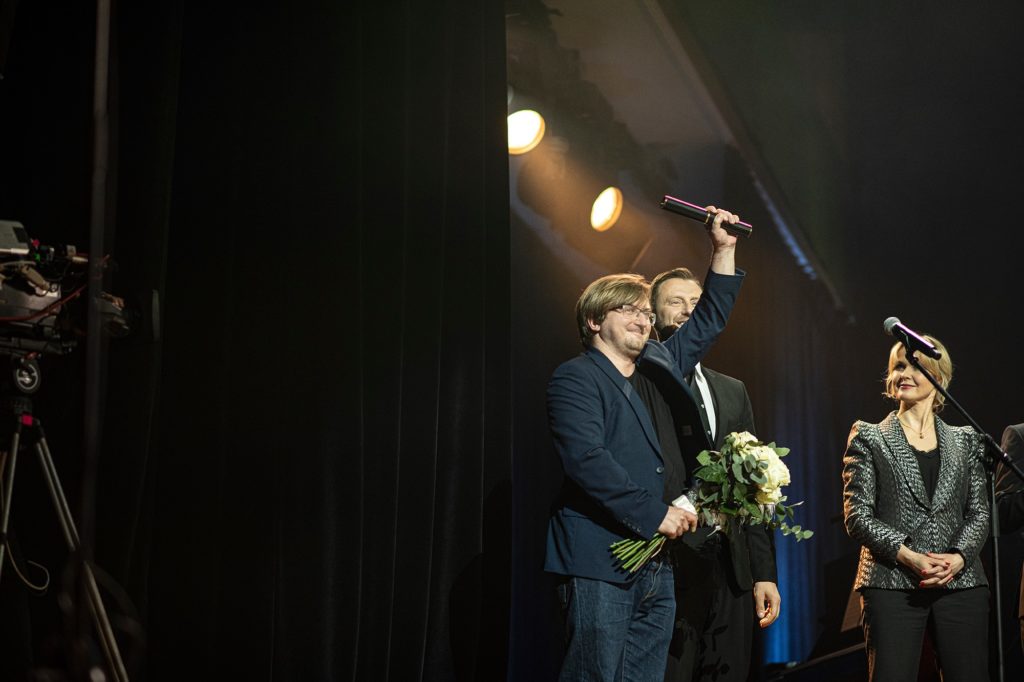
AS: Final question. It’s a pretty easy one. What are you looking forward to?
BC: To have a drink! I’m Polish! (*laughs*) No, I’m joking. Honestly I’m looking to have fun in a way, in many different ways, and writing music for me is fun. I’m not the kind of guy who suffers while writing. This is not my way. Mostly I have fun. Well, actually I write sad music, which is funny because I have a lot of fun writing it and then it’s mostly sad! (*laughs*) Sorry audience! You will not be having fun, I did! I just want to enjoy writing music and showing it to people. Well, I hate watching movies with my music. This I never do. I’m always so nervous. I never watch it. I’m never at the premiere, because after releasing the movie I would like to make changes: “It is wrong! It’s not really good! Let’s change it! It should be violins, not the piano!” So after I finish I don’t like to watch it, but in general, having fun!

